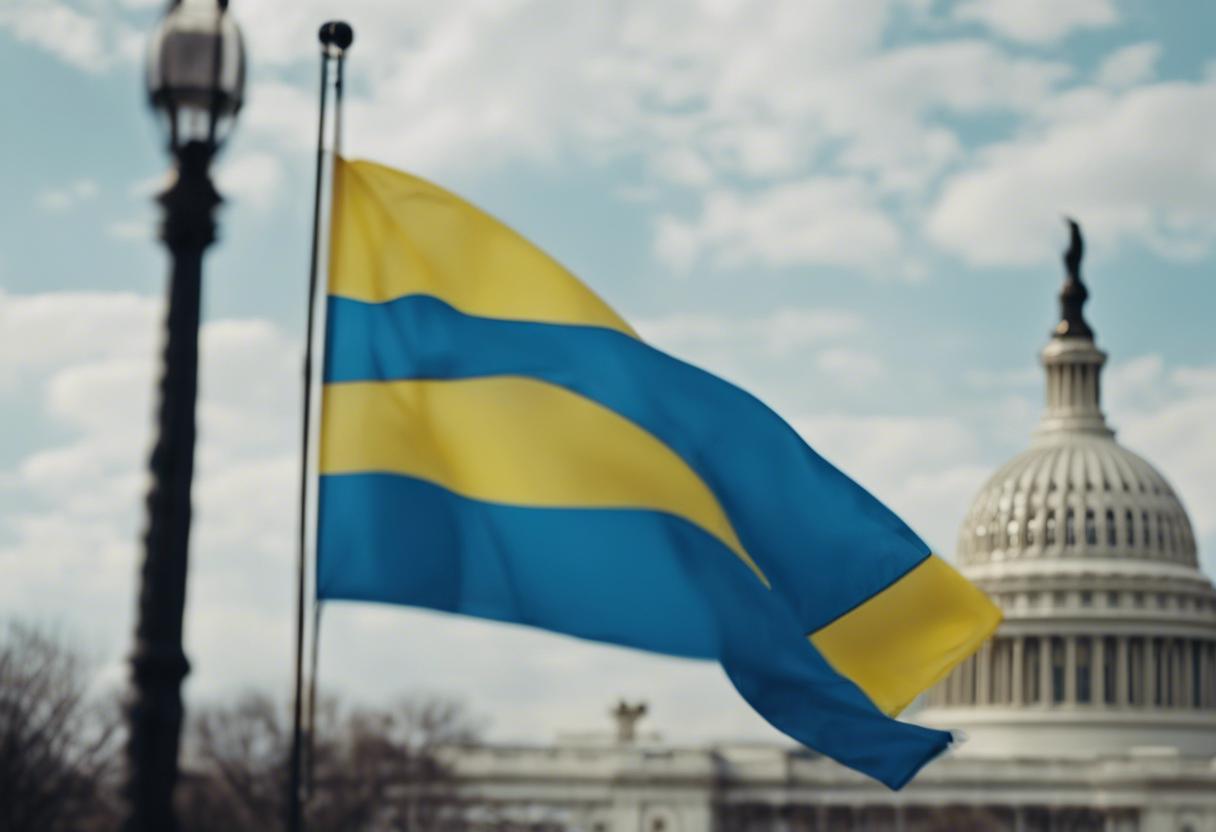US President Joe Biden has declared an increased military aid allocation of over $8 billion (€7.2 billion) to Ukraine as part of assistance to help it triumph in its war against Russian attackers. This announcement was made during the visit by Ukrainian President Volodymyr Zelenskiy and signifies a significant pledge.
The assistance will include an initial consignment of a precision-guided glide bomb, referred to as the Joint Standoff Weapon, with a potential range reaching up to 130km (or 81 miles). This intermediate-range missile greatly enhances Ukraine’s current armament, permitting strikes against Russian forces from increased distances, thus increasing safety. The bomb, capable of high precision strikes, will be released from fighter planes.
However, Mr Biden will not disclose if the US will permit Ukraine to utilise American missiles to target points further in Russia, according to a US official.
Providing support to Ukraine, invaded by Russia in February 2022, has been deemed a top priority by the US, stated Mr Biden. He further added, “That’s why I’m declaring today an escalation in security support for Ukraine and additional measures to aid Ukraine in its war efforts,”. Mr Biden is expected to leave office in January.
Most of this new aid, $5.5 billion, will be assigned before the US fiscal year ends on Monday, at which point the authority to allocate funding is anticipated to end. A further $2.4 billion comes under the Ukraine Security Assistance Initiative, enabling the administration to purchase arms for Ukraine from manufacturers as opposed to drawing from US reserves.
The assistance will offer additional air defence, unmanned aerial systems, air-to-ground munitions and will enhance Ukraine’s defence industry base while supporting its maintenance and sustainment necessities, explained Mr Biden.
As part of his plan, he stated, the US Department of Defence will overhaul and supply Ukraine with an additional Patriot air defence battery and a greater number of Patriot missiles.
Mr Biden has tasked the Pentagon with augmenting training for Ukrainian F-16 pilots, which includes supporting the training of an additional 18 pilots in the coming year.
In an effort to impede Russian attempts at sanctions evasion and money laundering, President Biden has committed the United States to disrupting and deterring a multinational cryptocurrency operation. Co-ordinated with global partners, this measure has been presented as a key part of the strategy.
Furthermore, a leadership-level assembly of the Ukraine Defence Contact Group in Germany has been announced for the coming month. President Biden aims to synchronise the support of over 50 nations for Ukraine through this initiative.
The Ukrainian President, Mr. Zelenskiy, is expected to engage with both Democratic and Republican leaders at the Capitol prior to meeting with Mr. Biden. Although support for Ukraine’s defence efforts has broadly been bipartisan in the US, it was uncertain whether many Republican leaders would make time to speak with President Zelenskiy due to increased criticism of his administration from the party, including Donald Trump.
The former American president, who is currently campaigning for the election on November 5th, has declined Zelenskiy’s request for a meeting and has voiced criticisms toward the Ukrainian leader. In a North Carolina rally, Trump accused Zelenskiy of financially benefiting from the US without making any deals.
Mr. Trump further implicated Mr. Biden and Vice President Kamala Harris, his Democratic adversaries, in the facilitation of Russia’s invasion.
President Zelenskiy’s recent visit to a munitions factory in Scranton, Pennsylvania, where Biden was raised, sparked outrage amongst many congressional Republicans. The Oversight Committee of the Republican-led House of Representatives has consequently launched an investigation into the Ukrainian president’s trip.
House speaker Mike Johnson, a Republican not anticipated to meet with Zelenskiy, has demanded the dismissal of the Ukrainian ambassador to Washington for orchestrating the Scranton visit. However, Johnson clarified that this call is not contingent to his opposition to military aid.

